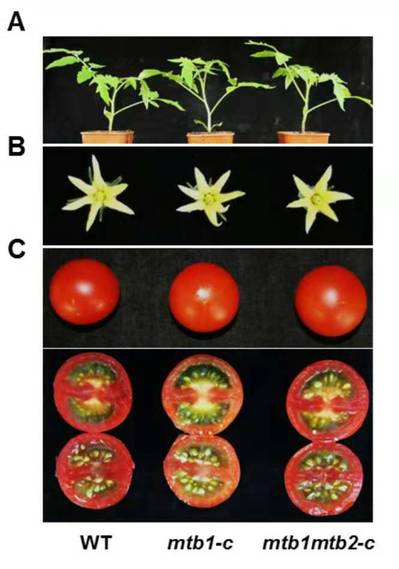As the most important vegetable worldwide, tomatoes experience constant threats posed by diseases and pests, which may prevent them from healthy growth and maintaining economical appearance. Professor Wang Qiaomei from College of Agriculture and Biotechnology and her research team have been doing research trying to find how Jasmonate(JA) regulates plant growth and immunity.
Together with her research partners from Institute of Genetics and Developmental Biology, CAS, their research findings were released online in The Plant Cell, and as suggested by the editorial board, provide a strategy to control the balance between growth and immunity and bear significant theoretical and application values in sustainable production of the plant.
Here is how it works. In immunity against diseases and pests, the plant will produce a certain kind of hormone called JA that can strengthen the plant’s resistance to diseases and pests. In general, Bhlh transcription factor MYC2 can help prevent diseases and pests by increase the release of JA. However, the plant will sacrifice its growth for immunity since the resources are mal-distributed.
Through studying tomatoes, the researchers find a bHLH protein induced by JA, the protein was named MTB which is MYC2-targeted BHLH protein. MTB proteins negatively regulate JA-mediated transcriptional responses via their antagonistic effects on the functionality of the MYC2-MED25 transcriptional activation complex.
Another experiment was carried out, with CRISPR/Cas9, the researchers obtained multiple subjects with their MTB edited. They feed pests with the subjects and find that pests grow slower and the subjects keep growing in a healthy manner. Professor introduced that with MTB edited, the immunity by MCY2-activated JA signaling is strengthened, the subjects can produce enzyme that cause indigestion and distract growth of pests.
(from Qiushi News)
Link:http://www.plantcell.org/content/early/2019/01/04/tpc.18.00405


